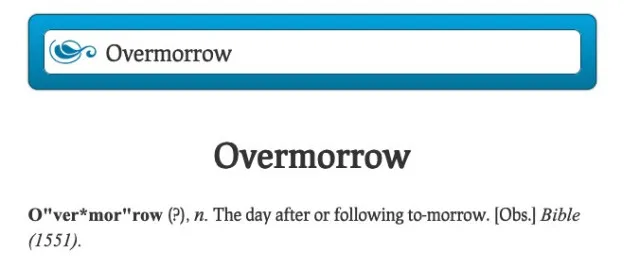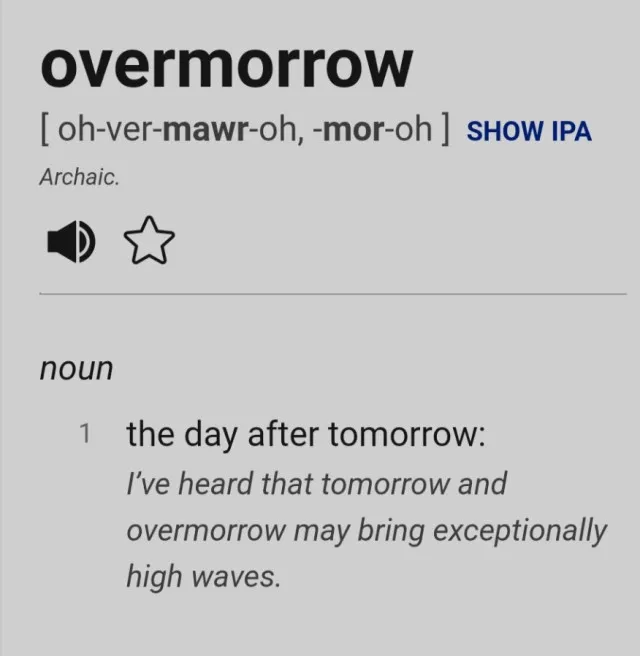A lesser-known word describes “the day after tomorrow.” This term is gaining attention as people discover its unique meaning.
What little-known word indicates “the day after tomorrow”?
Recently, many people have been surprised to learn that there is a single word for “the day after tomorrow.”
This intriguing term is “overmorrow.”
While it may sound unfamiliar, it has historical roots in the English language and is now gaining attention online.
The word “overmorrow” comes from combining “over,” meaning above or beyond, and “morrow,” an old term for morning.

The word has an intriguing history
It was first recorded in the 16th century, notably in the Coverdale Bible.
In one passage, it mentions making plans for today, tomorrow, and overmorrow.
This reference highlights how the term was once commonly understood and used.
Interestingly, “overmorrow” has not been widely used for quite some time.

People want to revive the word “overmorrow”
By the end of the 16th century, people began to prefer saying “the day after tomorrow” instead.
This longer phrase, while more cumbersome, became the norm in everyday conversation.
However, the term has popped up in historical contexts, including a mention in the UK Parliament as late as 1925.
Many people on social media are now advocating for the revival of “overmorrow,” seeing it as a more efficient way to express a common concept.

In other languages, similar words exist; for instance, the German word “übermorgen” and the French “surlendemain” both mean the same thing.
The resurgence of interest in “overmorrow” demonstrates how language evolves and how certain words can fall out of common use.
Rediscovering such terms raises questions about how we communicate and whether we can make everyday language easier.
It might take a while for “overmorrow” to become popular again, but the excitement around it shows how language keeps changing.

Social media reactions
On social media, people are mind-blown after realizing there’s a word for “the day after tomorrow.”
No, I didn’t. Thank you for enhancing my vocabulary, one user said.
in my country, we made up a word for that “next tomorrow.” the next user said.
Really? I learned something new, the third user commented.
In Portuguese, there’s a word for the day before yesterday, but there’s no word for the day after tomorrow, another wrote.